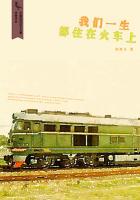Magniloquent Otto with the Arrow, Otto the Short, Hermann the Tall, all the Ottos, Hermanns and others, died by course of nature; nephew Waldemar himself, a stirring man, died prematurely (A.D. 1319), and left only a young cousin for successor, who died few months after: [September, 1320 (Pauli, i. 391). Michaelis, i.
260-277.] the Line of Albert the Bear went out in Brandenburg.
They had lasted there about two hundred years. They had not been, in late times, the successfulest Markgraves: territories much split up among younger sons, joint Markgraves reigning, which seldom answers; yet to the last they always made stout fight for themselves; walked the stage in a high manner; and surely might be said to quit it creditably, leaving such a Brandenburg behind them, chiefly of their ******, during the Two Centuries that had been given them before the night came.
There were plenty of Ascanier Cousins still extant in those parts, Saxon dignitaries, Anhalt dignitaries, lineal descendants of Albert the Bear; to some of whom, in usual times, Albert's inheritance would naturally have been granted. But the times were of battle, uncertainty, contested election: and the Ascaniers, I perceive, had rather taken Friedrich of Austria's side, which proved the losing one. Kaiser Ludwig DER BAIER would appoint none of these; Anti-Kaiser Friedrich's appointments, if he made any, could be only nominal, in those distant Northern parts. Ludwig, after his victory of Muhldorf, preferred to consider the Electorate of Brandenburg as lapsed, lying vacant, ungoverned these three years; and now become the Kaiser's again. Kaiser, in consequence, gave it to his Son; whose name also is Ludwig:
the date of the Investiture is 1323 (year after that victory of Muhldorf); a date unfortunate to Brandenburg. We come now into a Line of BAVARIAN Markgraves, and then of LUXEMBURG ones; both of which are of fatal significance to Brandenburg.
The Ascanier Cousins, high Saxon dignitaries some of them, gloomed mere disappointment, and protested hard; but could not mend the matter, now or afterwards. Their Line went out in Saxony too, in course of time; gave place to the WETTINS, who are still there.
The Ascanier had to be content with the more pristine state of acquisitions,--high pedigrees, old castles of Ascanien and Ballenstadt, territories of Anhalt or what else they had;--and never rose again to the lost height, though the race still lives, and has qualities besides its pedigree. We said the "Old Dessauer," Leopold Prince of Anhalt-Dessau, was the head of it in Friedrich Wilhelm's time; and to this day he has descendants.
Catharine II. of Russia was of Anhalt-Zerbst, a junior branch.
Albert the Bear, if that is of any use to him, has still occasionally notable representatives.
Ludwig junior, Kaiser Ludwig the Bavarian's eldest son, was still under age when appointed Kurfurst of Brandenburg in 1323:
of course he had a "STATEHOLDER" (Viceregent, STATTHALTER);then, and afterwards in occasional absences of his, a series of such, Kaiser's Councillors, Burggraf Friedrich IV. among them, had to take some thought of Brandenburg in its new posture. Who these Brandenburg Statthalters were, is heartily indifferent even to Dryasdust,--except that one of them for some time was a Hohenzollern: which circumstance Dryasdust marks with the due note of admiration. "What he did there," Dryasdust admits, "is not written anywhere;"--good, we will hope, and not evil;--but only the Diploma nominating him (of date 1346, not in Ludwig's minority, but many years after that ended [Rentsch, p. 323.]) now exists by way of record. A difficult problem he, like the other regents and viceregents, must have had; little dreaming that it was intrinsically for a grandson of his own, and long line of grandsons. The name of this temporary Statthalter, the first Hohenzollern who had ever the least concern with Brandenburg, is Burggraf Johann II., eldest Son of our distinguished Muhldorf friend Friedrich IV.; and Grandfather (through another Friedrich)of Burggraf Friedrich VI.,--which last gentleman, as will be seen, did doubtless reap the sowings, good and bad, of all manner of men in Brandenburg. The same Johann II. it was who purchased Plassenburg Castle and Territory (cheap, for money down), where the Family afterwards had its chief residence. Hof, Town and Territory, had fallen to his Father in those parts; a gift of gratitude from Kaiser Ludwig:--most of the Voigtland is now Hohenzollern.
Kaiser Ludwig the Bavarian left his sons Electors of Brandenburg;--"Electors, KURFURSTS," now becomes the commoner term for so important a Country;--Electors not in easy circumstances. But no son of his succeeded Ludwig as Kaiser,--successor in the Reich was that Pfaffen-Kaiser, Johann of Bohemia's son, a Luxemburger once more. No son of Ludwig's; nor did any descendant,--except, after four hundred years, that unfortunate Kaiser Karl VII., in Maria Theresa's time. He was a descendant. Of whom we shall hear more than enough. The unluckiest of all Kaisers, that Karl VII.; less a Sovereign Kaiser than a bone thrown into the ring for certain royal dogs, Louis XV., George II. and others, to worry about;--watch-dogs of the gods; apt sometimes to run into hunting instead of warding.--We will say nothing more of Ludwig the Baier, or his posterity, at present: we will glance across to Preussen, and see, for one moment, what the Teutsch Ritters are doing in their new Century. It is the year 1330; Johann II. at Nurnberg, as yet only coming to be Burggraf, by no means yet administering in Brandenburg; and Ludwig junior seven years old in his new dignity there.















